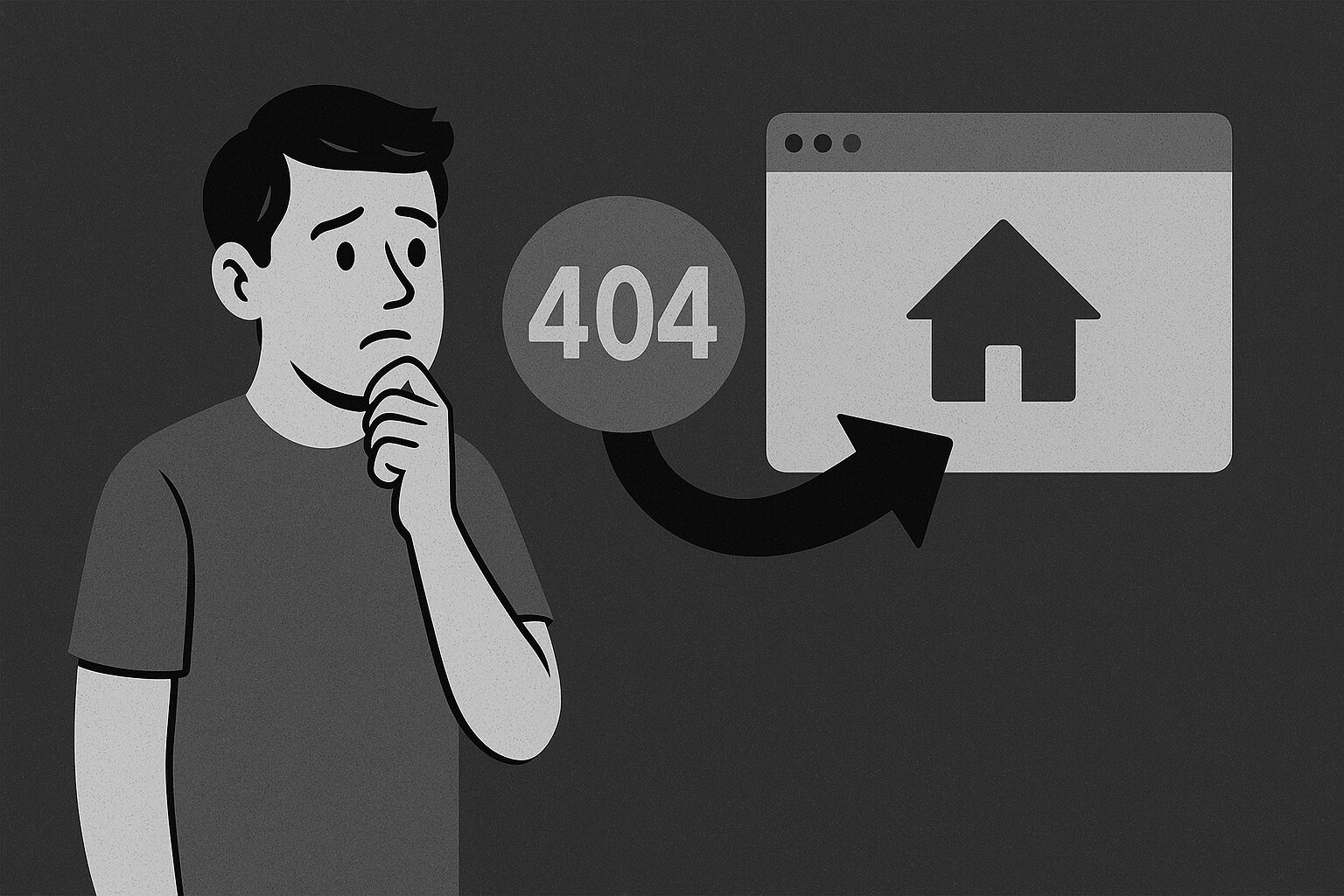This is a very common feature in WordPress Plugins, and even more commonly asked question that we receive, and it's something we see all too often. Let's start off by saying NO, you should never do this because it has a lot of reciprocal issues that we are going to get into below.
Why Redirecting 404s to Your Homepage Is a Generally Bad Idea
User Experience Issues
When you redirect users who would have encountered a 404 page directly to the home, you create a lot of confusion. If the user clicks expecting to be taken to the content but ends up being sent to a page completely irrelevant with no explanation, it can frustrate users. Additionally, users might end up trying to click the link several times, believing it's a technical issue on their end, and this can affect your analytics or increase bounce rate.
Analytics Distortion
Proper 404 pages help you, as the webmaster,r identify broken links for missing content that might need to be fixed. By redirecting all 404s to your homepage, you might be missing useful data on what your site visitors are trying to access but were unable to find it.
Loss of Trust
When users are silently redirected without explanation, it may damage trust. Visitors may perceive your site as unprofessional or deliberately misleading.
Better Alternatives for Handling 404 Errors
Create a Helpful Custom 404 Page
Design a user-friendly 404 page that communicates to the user that the content they are looking for doesn't exist. You can further improve the design by offering a search bar, popular links, or even a button to send them to the homepage.
Monitor and Fix Broken Links
Use tools like Google Search Console, SEMRush, or a WordPress plugin to monitor 404 errors on your site and then either fix the broken links or redirect them to a replacement page.
Implement Proper 301 Redirects
Proper 301 redirects are when you either had an exact match replacement for the page but changed the URL structure, or you had a relevant replacement page that could fulfill the user's request, and you sent them there instead.
Conclusion
While it might be enticing to simply redirect all 404s to your homepage, it usually creates more problems than it solves. It harms the user experience, could lead to SEO issues, skews your analytics data, and can damage trust in your site. Instead, focus on creating helpful error pages, fixing the underlying issues that caused the 404s in the first place, or creating valuable replacement content.
If you take a methodical approach to error handling, you're going to provide a better experience to both search engines and your users.

